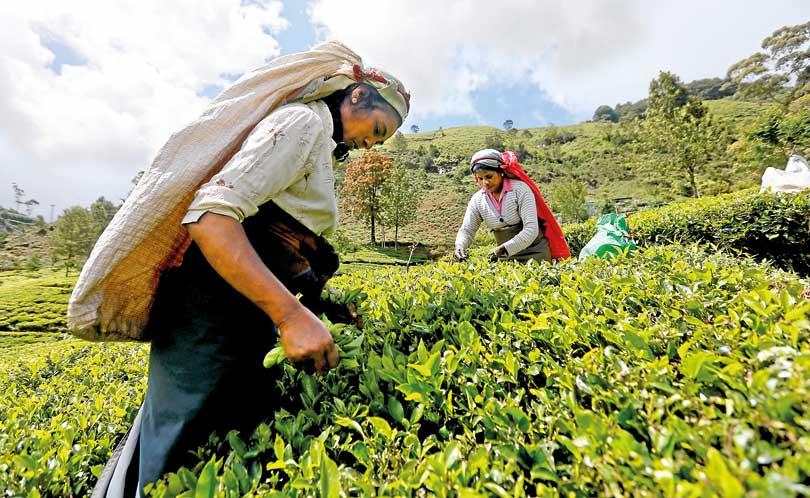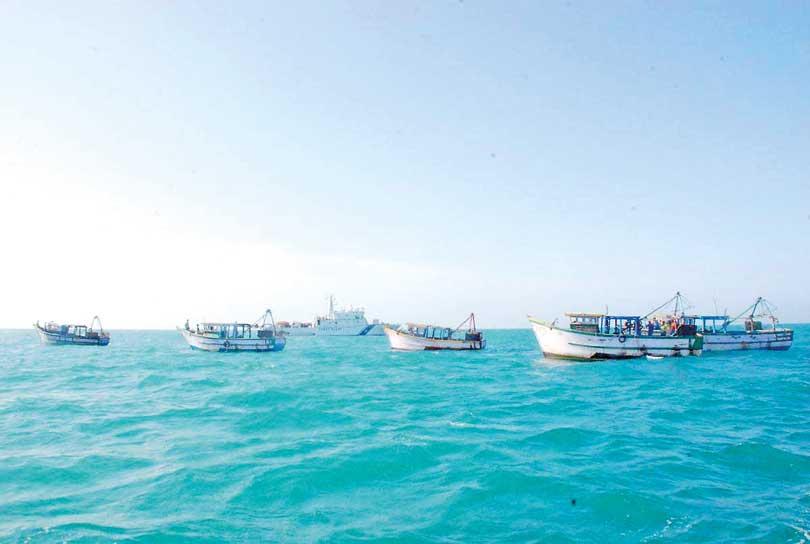05 Mar 2020 - {{hitsCtrl.values.hits}}

Indian Government funded houses have been given to tea pluckers of Indian origin
 Sri Lankans are looking forward to two things next month; the Sinhala-Tamil New Year and the General Elections. Hence we can say that the wait till then amounts to hope; hope that something positive can be witnessed when these two events take place.
Sri Lankans are looking forward to two things next month; the Sinhala-Tamil New Year and the General Elections. Hence we can say that the wait till then amounts to hope; hope that something positive can be witnessed when these two events take place.
There was a recent Facebook post in Sinhala which translated to English reads as follows: Waiting for someone to arrive amounts to hope. Waiting for someone despite knowing that the person wouldn’t come is love.
As Sri Lankans we need to promote that love; especially a love for the motherland. And when Gotabaya was elected as president of Sri Lanka nation there was hope that he’ll rally around individuals who love this island nation. The president has worked hard. However there are ifs, buts and concerns if one reviews the few months this regime has
administered the nation.
We see some attempts by the present regime to put things in order. And for that they’ve earmarked some key state institutions. The words Gotabaya used after making an unannounced visit to the Department of Motor Traffic in Werahera, to send a message to the authorities there to pull up their socks, were music to the ears of customers awaiting licenses. The incumbent president also made other visits to selected state institutes; all done with the aim of raising efficiency.

Much of the trouble has been caused to Sri Lanka by poaching activities carried out by Tamil Nadu fishermen
However questions are raised by critics whether the present regime has a plan to raise production? It’s known that if not for the private sector this country would have to import all what they consume.
In this context it’s apt to take into account the tea and fishing industries and see whether the government has a national policy to raise production and quality settle issues.
The fishing industry gives us much news; largely because of Indian trawlers poaching in our waters and vice versa. Much of that news is negative. As reported in some newspapers, there is a mafia that exists with certain families or clans controlling the sea going industry. Though the fishing ‘mudalalis’ (merchants) profit from every fish, those who bring home the catch have lived mediocre lives part from battling life and death while out at sea. Much of the trouble has been caused to Sri Lanka by poaching activities carried out by Tamil Nadu fishermen. The South Indian state has in the past agitated against the Government of Sri Lanka (GoSL). And apart from the fishing issue it has raised questions about disappearances and killings of Tamils in the battle fields in the north when the civil war raged. Sri Lankan fisher folk want the government to intervene when outsiders poach inside the home territory, but could we expect the GoSL to take on India when it has asked for a three year grace period to settle outstanding loans obtained from its closest neighbour?
Despite Sri Lanka being an island there is little government control over the fishing industry; hence the sky high prices for fish.
The spicy taste that remains in our mouths after consuming a hot fish curry cant be washed away without a steaming cup of tea. The fish in our rice packets and the tea we consume are so interwoven into our lives. Sri Lanka as a nation is known globally for its tea. But this regime has failed to ensure that tea estate workers are paid a daily wage of Rs 1000.
The past government led by Ranil Wickremesinghe and present regime under Gotabaya Rajapaksa have intervened and tried to convince estate owners to pay the estate labourers the four figure daily wage, but to no avail.
If we love this country we need a national policy and a more comprehensive role to be played by the government where the tea and fishing industries are concerned.

Though the fishing ‘mudalalis’ (merchants) profit from every fish, those who bring home the catch have lived mediocre lives
The issues that these two industries create at home have also attracted the attention of the Indian Government. As reported in The Hindu newspaper, Gotabaya Rajapaksa, during a visit to New Delhi after he was elected as president, ordered the release of 57 boats in Sri Lankan custody. We’ve also seen Prime Minister Narendra Modi’s interest in the welfare of Sri Lankan tea estate workers. There have been several visits by Modi to the island nation to handover Indian Government funded houses to tea pluckers of Indian origin.
We’ve shown that our love to nurture our tea bushes and protect out fishing waters has lessoned over the years. We’ve left room for other nations to enter our territories and promote their agendas as a result. This is all because the territories used to grow tea and engage in fishing are sensitive areas, not only to us but to our closest neighbour as well.
There was a time when we waited with hope that a true leader would surface one day and revive the dwindling fortunes of this nation. That hope has been materialised. But years of neglecting both our maritime business of fishing and the work force slogging to produce the tea leaf of our choice have made ambitious nations watch over our shoulder; a factor which makes the role of governance so much annoying.
20 Apr 2024 24 minute ago
20 Apr 2024 26 minute ago
20 Apr 2024 3 hours ago
19 Apr 2024 19 Apr 2024
19 Apr 2024 19 Apr 2024